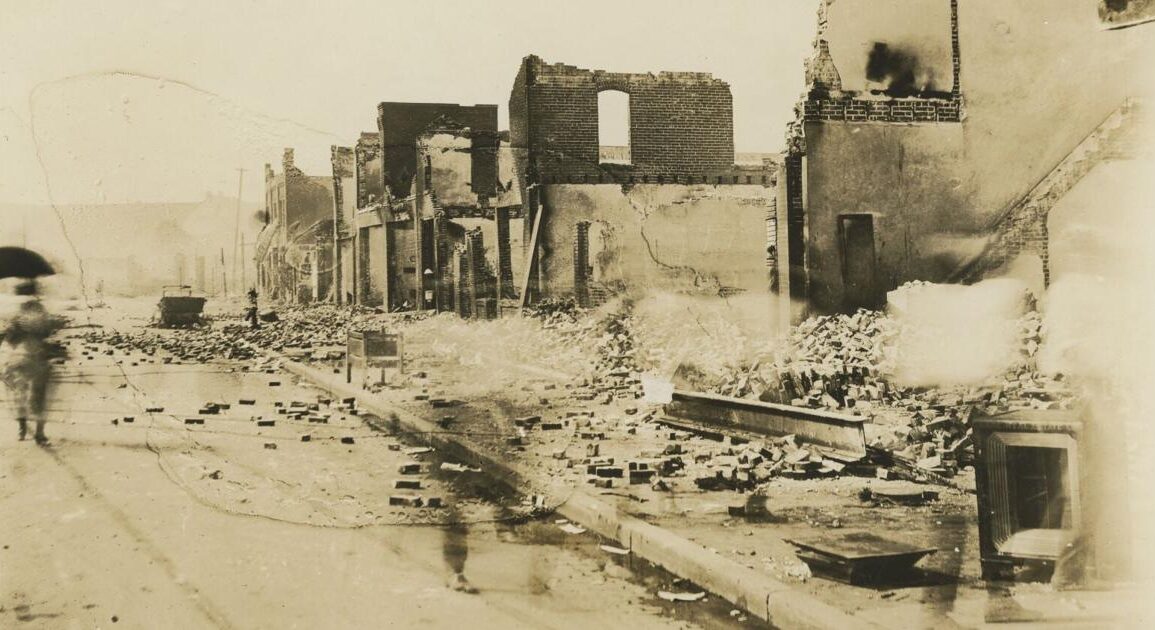
The city is closer to establishing a commission on possible reparations and repairs for those harmed by the 1921 Tulsa Race Massacre.
Mayor G.T. Bynum said this week that a six-person working group has been created to develop the commission’s structure and to review possible members.
The working group includes City Councilors Vanessa Hall-Harper and Lori Decter Wright, city Chief Resilience Officer Krystal Reyes, Department of City Experience Director James Wagner, Bynum and his chief of staff, Blake Ewing.
Creation of a government-sanctioned commission or task force “to establish and implement the terms of a reparations program” for descendants and survivors of the 1921 Tulsa Race Massacre was recommended in the Beyond Apology report issued earlier this year.
People are also reading…
Beyond Apology was an independent, months-long program sanctioned by the city to educate Tulsans on the massacre and gather their suggestions on possible avenues of redress.
Bynum has said previously that he does not support reparations in the form of direct cash payments but is open to other ideas to address harms caused by the massacre.
“The Beyond Apology report cites many different options for Tulsans to consider in seeking to move ‘beyond apology’ in support of our neighbors who were harmed by the race massacre,” he said this week. “These include educational opportunities, housing support and job creation.
“The commission will be tasked with evaluating these and helping the city determine the best path forward.”
The city hopes to have something formalized before the end of the summer, Bynum said.
The city is also looking to have community partners and stakeholders assist in reviewing applications and making recommendations regarding commission membership.
The May 31-June 1, 1921, attack on Tulsa’s Greenwood District — then home to one of the country’s most prosperous Black communities and Black Wall Street — destroyed 35 square blocks and left dozens of people dead. Some have estimated the number of dead to be in the hundreds.
Last month, the Oklahoma Supreme Court rejected the latest lawsuit seeking damages from the massacre. None of the hundreds of lawsuits seeking restitution for the massacre have succeeded.
“What I’ve seen in my time at the city — especially when it comes to issues of race — is that progress can be made when dialogue continues and common ground is identified,” Bynum said. “My hope is that this commission would serve as a vehicle for both.”
Hall-Harper is the lone Black city councilor and represents the district in which Greenwood is located. She played a key role in advancing the Beyond Apology program.
“As far as what we, as a city, can do — are willing to do, I mean — that’s for future discussions, after a commission has been formed, and then we start talking about those things,” Hall-Harper said. “But I don’t want to put the cart before the horse.
“Right now, as far as what we’re going to do, I don’t know. I don’t have an answer to that yet. But what I do know is that at least there’s a willingness to put together a commission so that we can start the discussions.”
The Tulsa World is where your story lives
The Tulsa World newsroom is committed to covering this community with curiosity, tenacity and depth. Our passion for telling the story of Tulsa remains unwavering. Because your story is our story. Thank you to our subscribers who support local journalism. Join them with limited-time offers at tulsaworld.com/story.


